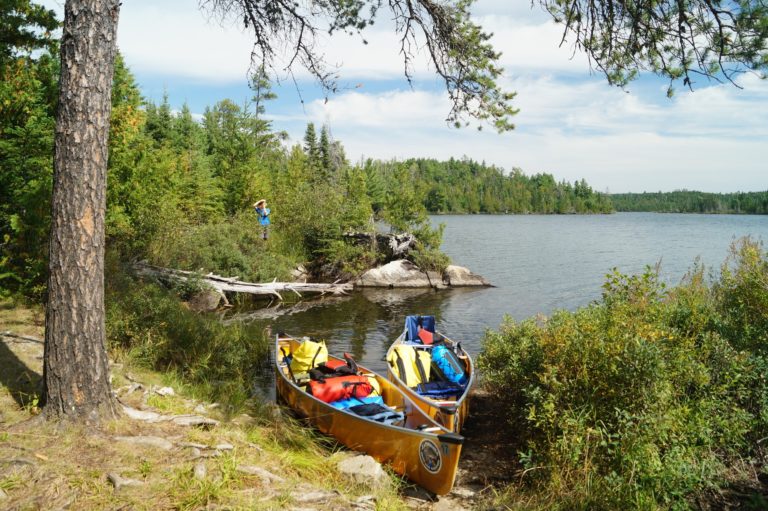
Powerful polluters have many resources at their disposal to sway government decisions in their favor. Often companies will influence decision-makers both in Congress and the administration so that there are multiple avenues for them to get their desired outcome.
A good example of this can be seen in the fight to keep mining out of northern Minnesota’s Boundary Waters watershed. Ten thousand years ago, glaciers stripped the Boundary Waters region down to bedrock, leaving behind beautiful cliffs, islands, and thousands of interconnected lakes and streams. This area is renowned as canoe country and is home to the 1.1 million acre Boundary Waters Canoe Area Wilderness, the 227,000-acre Voyageurs National Park and, on the Canadian side of the border, the 1.2 million-acre Quetico Provincial Park. Voyageurs National Park draws a quarter-million visitors each year, and another 155,000 annual visitors come to the pristine Boundary Waters Canoe Area, making it one of the most visited wilderness areas in the United States.
Unfortunately, mining companies are also interested in the Boundary Waters watershed. The company Twin Metals applied to the federal government for renewal of a pair of federal mineral leases which would give it the right to develop sulfide-ore copper mines in a portion of the Superior National Forest—located next to and upstream from the Boundary Waters Wilderness. These mines would be located in the watershed of the Boundary Waters, which means that pollution from the mines, including acid-mine drainage, would contaminate the pristine waters found in the watershed.
The Save the Boundary Waters Campaign has been leading the effort to protect the Boundary Waters Wilderness from sulfide-ore copper mining in the watershed. Its supporters celebrated two milestones in 2016 when the Interior Department denied Twin Metals’ request for renewal of its federal mineral leases and when, in a separate move, the U.S Forest Service proposed making federal lands in the Boundary Waters watershed off-limits to new mineral leasing for 20 years.
However, much of this progress is now under attack. Last year, after lobbyists and CEOs of Twin Metals and its parent company, Antofagasta PLC, met with the Department of Interior, the agency reversed course by announcing that it was wrong to deny the renewal of Twin Metals’ mineral leases in 2016. If let stand, this decision could give Antofagasta and its subsidiaries the right to develop mines in the Boundary Waters watershed even if the Forest Service proposal is finalized. At the same time, some Members of Congress are pushing forward measures that would make it easier for Twin Metals and other companies to mine in the Boundary Waters region and to stop the Forest Service proposal. This includes H.R. 3905, “Minnesota’s Economic Rights in the Superior National Forest Act,” which passed the House in late 2017, and a proposed federal budget rider in the House spending bill.
There still are many opportunities to protect the Boundary Waters so that everyone will have a chance to experience Minnesota’s unique and beautiful lakeland Wilderness, but the fight to protect the Boundary Waters shows how much we are up against. To protect the areas we care about and preserve the safeguards that keep us all healthy and safe, we need to stay vigilant and push back against attacks on our public lands. Here are some ways you can stay on top of developments and take action:
Track your Members of Congress
Sign up for their mailing lists and read their press releases. As is the case with H.R. 3905, Members of Congress will often give bills names that make them seem harmless or beneficial, so you cannot rely on the name of a bill alone to understand what it does. If one of your Members of Congress announces they are introducing or supporting a bill, look up the bill and see if other sources have reported on its impacts. If you see that your Member of Congress is supporting something that concerns you, call them right away. If you want to do even more in-depth tracking, you can you can use GovTrack to get email updates on how your Congresspeople are voting.
[CongressLookup]
Track issues that matter to you
Is there a Wilderness Area, National Park, or other public land that is particularly dear to you? Are you worried about a particular proposed industrial project? Is there an environmental contaminant you are worried about? Set up Google news alerts to get updates on the issues that matter most to you.
Feature image by Greg Gjerdingen.